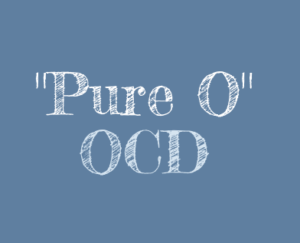Do you suffer from Pure OCD? If so, you know how difficult it can be to get relief from your symptoms. The good news is that there are treatments available that can help. In this guide, we will discuss the different pure OCD treatment options available and provide information on how to find the best treatment for you.
Contents
What Is Pure OCD?
 Pure Obsessive Compulsive Disorder (Pure OCD) is an anxiety disorder characterized by intrusive, unwanted, and distressing thoughts. That causes significant distress or impairment in daily life. It usually involves obsessive concerns about cleanliness, safety, morality, and religious beliefs.
Pure Obsessive Compulsive Disorder (Pure OCD) is an anxiety disorder characterized by intrusive, unwanted, and distressing thoughts. That causes significant distress or impairment in daily life. It usually involves obsessive concerns about cleanliness, safety, morality, and religious beliefs.
People with Pure OCD are also likely to experience intense feelings of guilt, shame, and fear for no apparent reason. They may also have difficulty concentrating and experience insomnia.
The causes of pure OCD may vary, but many times the disorder can be traced to genetics and environmental triggers. The reason it is called ‘pure’ is that it does not have any associated compulsions, such as repetitive behaviors or avoidance of certain scenarios. In fact, it is much more difficult to treat due to the lack of observable compulsions.
Therefore, if you or someone you know is suffering from Pure OCD, it is important to recognize the signs and seek treatment. This guide will provide an overview of available treatments for Pure OCD, as well as advice on how to manage symptoms.
When To Seek Pure OCD Treatment?
It might be difficult to identify whether you need professional help for Pure OCD. Symptoms can range from mild to severe and being overly self-critical or worrying a lot doesn’t necessarily mean you have Pure OCD.
If your symptoms are causing significant distress, or if they interfere with your daily life, seeking professional help is recommended. Common signs that treatment may be necessary include:
- Thoughts or fears about contamination, germs, or dirt that won’t go away
- Repetitive behaviors to decrease anxiety (i.e., excessive washing or checking)
- Unwanted thoughts related to religion, morality, or sex that you can’t control
- Feeling overwhelmed by intrusive worries and doubts
- Difficulty concentrating on day-to-day activities
These are just some of the signs that professional help may be needed. If you think that Pure OCD is impacting your life, it’s important to seek an evaluation and treatment from a professional.
To prepare for your evaluation, make sure to keep a written record of your symptoms, when they occur, and what triggers them. This will help the clinician gain insight into your condition and create a proper treatment plan.
What Are Some Pure OCD Treatment Options?
 Pure OCD treatment often involves a combination of medication and therapy. There are, in fact, numerous treatment options for OCD that you can choose from, depending on your individual needs and preferences. Let’s discuss a few of the many options available.
Pure OCD treatment often involves a combination of medication and therapy. There are, in fact, numerous treatment options for OCD that you can choose from, depending on your individual needs and preferences. Let’s discuss a few of the many options available.
Medication
For some people, medication can help to manage symptoms and reduce the intensity of obsessions and compulsions. Common medications used for Pure OCD include selective serotonin reuptake inhibitors (SSRIs), tricyclic antidepressants, antipsychotics, and benzodiazepines. It is important to discuss all medication options with your doctor, as each type of medication has its own risks and benefits.
Cognitive Behavioral Therapy (CBT)
Cognitive behavioral therapy (CBT) is one of the most commonly used treatments for Pure OCD. CBT focuses on identifying and changing harmful patterns of thought, behavior, and beliefs related to the disorder. In addition, it can help a person learn coping skills and strategies for managing their symptoms.
Exposure and Response Prevention (ERP)
Exposure and response prevention (ERP) is another effective form of treatment for Pure OCD. This type of therapy involves gradually exposing an individual to the thoughts, feelings, and objects that cause distress while teaching them to resist engaging in compulsive behaviors. It is important to note that ERP should only be conducted under the guidance of a trained mental health professional.
Acceptance and Commitment Therapy (ACT)
Acceptance and commitment therapy (ACT) is an emerging form of treatment for OCD that focuses on increasing acceptance of thoughts and feelings while developing action-oriented coping skills. This type of therapy helps a person to recognize when they are engaging in unhelpful patterns of thinking and behavior, while also helping them to focus on their goals and values.
Other Therapies
In addition to medication and the therapies mentioned above, there are several other treatments for Pure OCD that may be beneficial. These include:
- Habit reversal therapy
- Mindfulness-based cognitive therapy
- Psychodynamic psychotherapy
Again, it is important to discuss all available options with your doctor or therapist before deciding on which treatment plan is right for you.
Support Groups
Recently, many support groups have become available for people with Pure OCD to connect and share their experiences. These groups provide a safe, supportive environment in which individuals can discuss coping strategies, Treatment options, and other information related to the disorder. In fact, these groups are led by professionals in many cases. And that is why it can be extremely helpful to join one or more of these support groups.
So, when it comes to pure OCD treatment options, there are many different paths you can take. The key is to explore all the options available and find the one that works best for you. With the right combination of medication, therapy, and support, it may be possible to reduce symptoms and lead a healthier life. Good luck!
Which Is The Best Treatment For Pure O?
 Pure OCD (also known as Purely Obsessional OCD) is a relatively rare form of Obsessive-Compulsive Disorder. It is characterized by intrusive, repetitive thoughts and doubts that are not accompanied by observable behaviors such as cleaning or checking—hence the term “pure” in its name.
Pure OCD (also known as Purely Obsessional OCD) is a relatively rare form of Obsessive-Compulsive Disorder. It is characterized by intrusive, repetitive thoughts and doubts that are not accompanied by observable behaviors such as cleaning or checking—hence the term “pure” in its name.
The best treatment is generally thought to be cognitive behavioral therapy (CBT). CBT is a form of psychotherapy that focuses on identifying, understanding, and changing negative thinking patterns, behavior, and emotional responses.
And ERP (Exposure and Response Prevention) is an important part of CBT for treating Pure OCD. It involves gradually exposing yourself to the thoughts, images, and situations that trigger your obsessions. While teaching you healthy coping techniques to help you resist engaging in compulsive behaviors like avoidance, rituals, or compulsions.
So, these are generally best practices when it comes to treating Pure OCD. But the best thing is always subjective, as no two people are the same. Ultimately, it’s important to find a treatment that works for you and your individual needs.
Can Pure OCD Be Cured Permanently?
The complete cure for pure OCD is still an open question. While there are some reports of people with Pure OCD who have been able to reach a permanent state of remission, this is not the norm and is far from being universally accepted as possible.
Because Pure OCD is rooted in distorted thinking patterns and misattributed threat perceptions, treating it effectively requires identifying and challenging underlying beliefs. As well as developing healthier coping mechanisms.
It might be possible in some cases to achieve complete remission from Pure OCD with long-term CBT and ERP. With this approach, the patient is exposed to their feared stimuli and learns how to develop healthier ways of responding.
Overall, it is important to emphasize that there is no one-size-fits-all solution for Pure OCD. Each patient presents a unique set of individual symptoms, and the best treatment plan should be tailored to the needs of that person.
How Can I Choose The Right Treatment For Me?
 While there are so many options available when it comes to treating Pure OCD. You should always consult with a qualified mental healthcare professional such as a psychologist or psychiatrist. However, here are a few tips to help you choose the right treatment for Pure OCD:
While there are so many options available when it comes to treating Pure OCD. You should always consult with a qualified mental healthcare professional such as a psychologist or psychiatrist. However, here are a few tips to help you choose the right treatment for Pure OCD:
- Know Your Treatment Options: Make sure you are aware of the different treatment options that are available. Such as cognitive behavioral therapy (CBT), exposure and response prevention (ERP), and mindfulness-based cognitive therapy.
- Give Yourself Time: It often takes time to find the right treatment and know what works best for you. So be patient and give yourself the time you need to make sure that Pure OCD is properly managed.
- Keep Track of Your Progress: No matter which treatment you choose, it is important to keep track of your progress. So that you can assess how well the treatment is working. And make any necessary adjustments along the way.
- Choose Your Goals: It is important to set goals for yourself and have a plan for how you will achieve them. This can help give you a sense of direction in your treatment and keep you motivated.
- Stay Positive: Even if things don’t seem to be progressing as quickly as you would like. Remember that progress is possible, and staying positive can help keep your spirits up through your journey to recovery.
- Don’t Give Up: Recovery from Pure OCD can be a lengthy process. And it is important to not give up on yourself or the treatment. With patience, persistence, and dedication, you can overcome this disorder and live a more fulfilling life.
Following these tips should help you find the right treatment for your Pure OCD and ensure that you are on the path to recovery. While it may take time and dedication, treating Pure OCD is possible. Don’t let Pure OCD control your life; with the right treatment, you can gain control and find relief.
Conclusion
In conclusion, pure OCD treatment options are not one-size-fits-all and can vary greatly depending on the severity of symptoms and individual preferences. However, regardless of which treatment method is chosen, the ultimate goal should be to focus on acquiring skills. That will reduce intrusive thoughts, increase self-esteem, and improve overall functioning.
For more information and guidance, please contact OCDMantra. OCD is a mental health disorder characterized by obsessions and compulsions. If you have any queries regarding OCD treatment, ERP therapy experienced therapists at OCDMantra can help: Book a trial OCD therapy session


